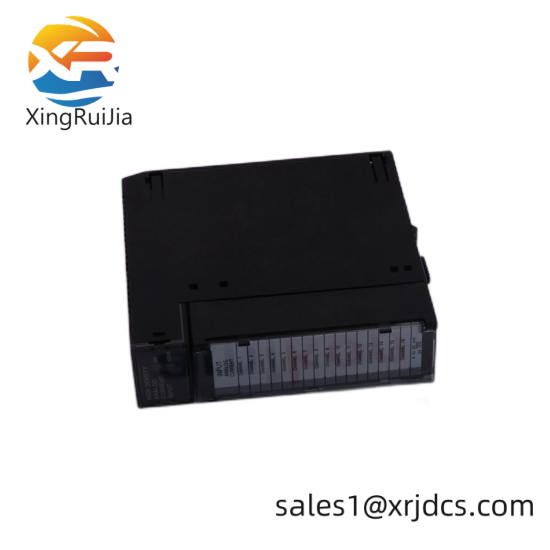Technical Parameter
Brand:GE/General Electric
Model:IC800VMCP3200
Cable Type:Encoder
Length:20 meters
Wattage Capacity:100 to 750 watts
Series:IC800VMCP
Certification:Compliant with industrial standards
Product Introduction
Designed by GE, the IC800VMCP3200 encoder cable is meticulously engineered for use with VersaMotion controllers, offering seamless integration and reliable performance.
Crafted from high-quality materials, this cable withstands the rigors of industrial settings, ensuring longevity and efficiency.
With its extended 20-meter length, it offers flexibility in placement and connectivity options, making it suitable for large-scale machinery and equipment.
Its power capacity ranges from 100 to 750 watts, supporting a wide array of applications within industrial automation.
Experience the superior quality and performance of GE‘s industrial components, tailored to meet the demands of modern manufacturing processes.

Annual hot selling advantage products:
ABB PM665、ABB S-073N、ABB S-123H 3BHB030479R0512
First hand source, affordable price. Spot inventory!
•Shipping Port: Xiamen
•Ship to you via Fedex/DHL/TNT/UPS/EMS
•Package: Original packing with cartons
What is a DCS?
A Distributed Control System (DCS) is a sophisticated, computer-based control system designed to automate, monitor, and manage complex industrial processes. It is widely used in large-scale industrial facilities such as refineries, power plants, chemical plants, and paper mills, where precision, reliability, and scalability are critical.
How Does a DCS Work?
A DCS is composed of several interconnected components that work seamlessly to ensure efficient process control. Here’s a breakdown of its key elements:
- Controllers:
These are the “brains” of the system. Controllers receive data from sensors, process it using pre-programmed logic, and send output signals to actuators to maintain optimal process conditions. - Sensors:
Sensors act as the “eyes and ears” of the system, measuring critical physical parameters such as temperature, pressure, flow rate, and level. This real-time data is essential for accurate control. - Actuators:
Actuators are the “muscles” of the system. They execute physical actions based on controller commands, such as opening/closing valves, starting/stopping motors, or adjusting dampers. - Operator Stations:
These serve as the human-machine interface (HMI), allowing operators to monitor the process, adjust setpoints, and troubleshoot issues. Modern DCS systems often feature intuitive graphical interfaces for ease of use. - Communication Network:
The backbone of the DCS, this network connects all components, enabling seamless data exchange and coordination. It ensures that every part of the system works in harmony, even across large industrial sites.
Why is a DCS Important?
- Centralized Control with Distributed Execution: A DCS allows for centralized monitoring while distributing control functions across multiple controllers, reducing the risk of system-wide failures.
- Scalability: It can easily expand to accommodate growing operational needs.
- Reliability: Redundant systems and fail-safes ensure continuous operation, even in critical environments.
- Efficiency: Optimizes processes, reduces waste, and improves overall productivity.













There are no reviews yet.